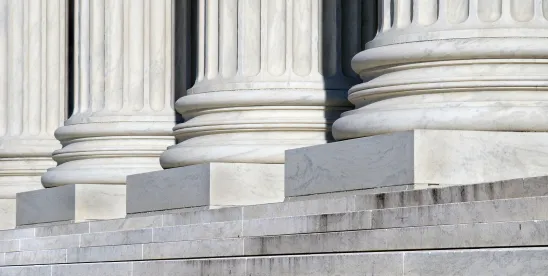On June 27, 2025, the U.S. Supreme Court upheld, in a 6-3 vote, H.B. 1181, a Texas law that requires certain commercial websites publishing sexually explicit content to verify that visitors are 18 years of age or older. H.B. 1181 applies to entities that publish or distribute material on a website, more than one-third of which is “sexual material harmful to minors,” as defined under the law. Nearly two dozen other states have passed legislation imposing materially similar age-verification requirements to access such content.
The Free Speech Coalition (“FSC”), an adult entertainment trade association group and petitioner in the case challenging the law, argued that H.B. 1181 unconstitutionally hinders adult viewers’ access to adult entertainment as covered free speech. The Court disagreed and upheld H.B. 1181. The Court held that the Texas law, which requires websites to verify users are 18 years of age or older to access sexual material harmful to minors, is subject to intermediate scrutiny under the First Amendment and survives that standard. This means the law is constitutional because it serves an important government interest (protecting minors from harmful content) and does not unduly restrict the free speech rights of adults. The Texas law requires users of such covered websites to verify their age by either (1) providing digital identification (i.e., information stored on a digital network that serves as proof of the individual’s identity) or (2) complying with a commercial age verification system that verifies age using either government-issued identification or transactional data. In its ruling, the Court held that “adults have no First Amendment right to avoid age verification.” In light of this ruling, age-verification requirements in other state and federal laws designed to protect children online may be more likely to be upheld.



 />i
/>i

